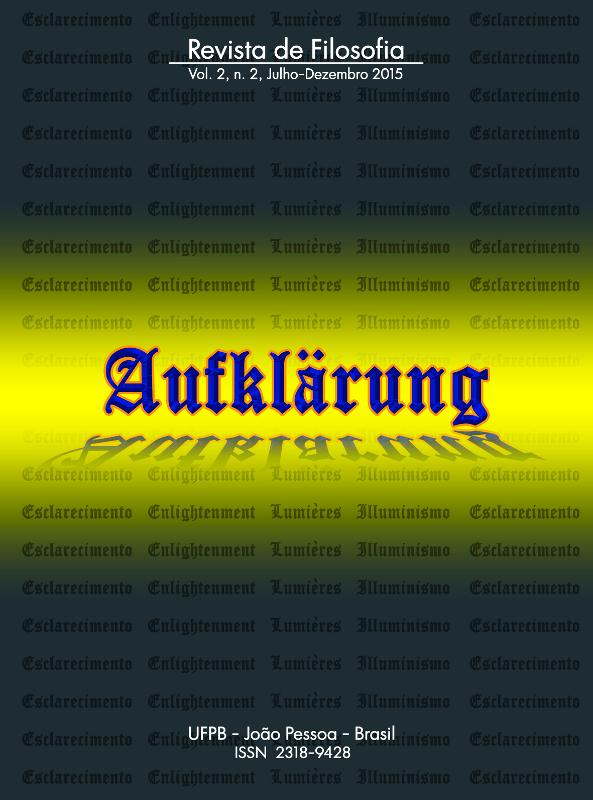Logical Quantification and Plato's Theory of Forms
DOI:
https://doi.org/10.18012/arf.2016.24905Keywords:
being, false statements, negation, Plato, possibility of knowledge, quantification, Sophist, theory of FormsAbstract
Contemporary philosophers find Plato's discussion in the Sophist about the problem of negation and falsity as interesting and difficult. It is interesting in the sense that in this dialogue, and others that are considered by Plato scholars to belong to the late period dialogues, we seem to find a Plato who makes less use of the theory of Forms (a distinguishing feature of the middle period dialogues). It is difficult in the sense that It invites us to use the notational convention of modern symbolic logic to provide a coherent picture of Plato's view. Charlton prefers a Platonizing Interpretation on the issue and quantifies over Forms (and not over concrete objects). Given this context, the paper inquires whether logical quantification is the correct (or at the very least, the best) route to pursue in order to better understand the Forms. It will also discuss the crucial role of Plato's theory of Forms in the middle and late period dialogues in relation to knowledge and its very possibility.Downloads
References
BROWN, J. R. Philosophy of Mathematics: A Contemporary Introduction to the World of Proofs and Pictures. 3rd ed. New York: Routledge, 2008.
CHARLTON, W. Plato’s Later Platonism. In: TAYLOR, C. C. W. ed. Oxford Studies in Ancient Philosophy Vol. XIII. Oxford: Oxford University Press, pp. 111-133, 1995.
PLATO. Plato, Complete Works. J. M. Cooper & D. S. Hutchinson eds. Indianapolis/Cambridge: Hackett Publishing Company, Inc., 1997.
QUINE, W. V. O. From a Logical Point of View: Nine Logico-philosophical Essays. Cambridge, Massachusetts: Harvard University Press, 1961.
QUINE, W. V. O. Word and Object. Cambridge, Massachusetts: Massachusetts Institute of Technology Press, 1960.
RYLE, G. Plato’s Progress. London: Cambridge University Press, 1966.
STOUGH, C. L. “Forms and Explanation in the Phaedo.” Phronesis, 21 (1): pp. 1-30, 1976.
Additional Files
Published
How to Cite
Issue
Section
License
Journal general policy
1.This journal works under a Creative Commons License aplied to online journals. That icence can be read in the following link: Creative Commons Attribution 4.0 International (CC BY 4.0).
2.Accordingly to this License, a)the journal declares that authors hold the copyright of their articles without restrictions, and they can archieve them as post-print elsewhere. b)the journal allow the author(s) to retain publishing rights without restrictions.
Metadata Policy for information describing items in the repository
1. Anyone may access the metadata free of charge at anytime.
2.The metadata may be re-used in any medium without prior permission, even commercial purposes provided the OAI Identifier or a link to the original metadata record are given, under the terms of a CC BY license refered for the Journal.







































